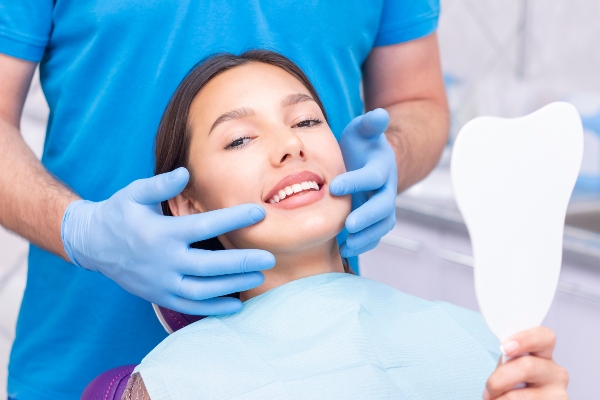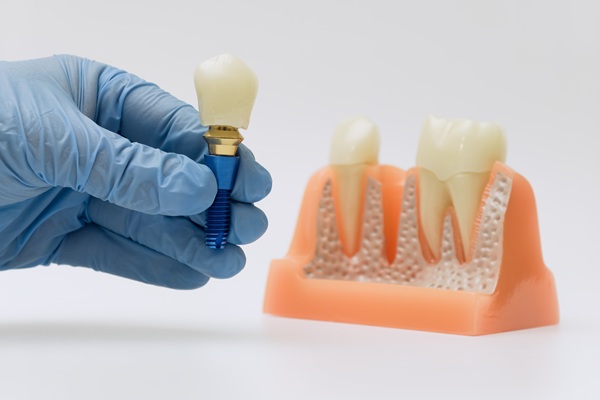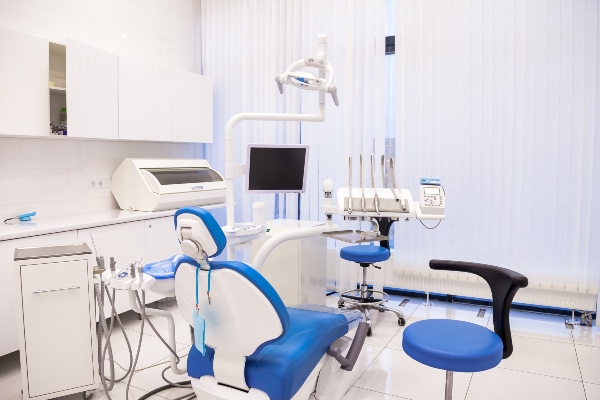 A damaged tooth can cause significant pain and lead to more severe dental issues when not treated as soon as possible. An emergency dentist can preserve oral health when unexpected dental injuries occur. Whether the damage results from an accident, a fall, or biting onto something hard, immediate professional guidance and treatment can prevent further complications. Below are three recommendations from an emergency dentist that can help preserve the integrity of a damaged tooth.
A damaged tooth can cause significant pain and lead to more severe dental issues when not treated as soon as possible. An emergency dentist can preserve oral health when unexpected dental injuries occur. Whether the damage results from an accident, a fall, or biting onto something hard, immediate professional guidance and treatment can prevent further complications. Below are three recommendations from an emergency dentist that can help preserve the integrity of a damaged tooth.
1. Preserve any broken or knocked-out tooth fragments
One of the most critical actions to take after experiencing dental trauma is to locate and preserve any broken or knocked-out tooth fragments. If a tooth is completely dislodged, it is important to handle it with care. The patient should pick it up gently by the crown — the portion exposed above the gum line. Avoid touching the root to prevent contamination and potential damage to the softer dental tissues.
Once the patient has the tooth, they should take the time to rinse it gently under cool water to remove any dirt or debris that may have accumulated on the crown or root. However, they should refrain from scrubbing or using soap. This can disrupt the tooth's surface and kill vital cells necessary for reattachment.
Additionally, the patient should keep the tooth moist to increase the chances of successful reattachment. The best way to do this is to store the tooth in a container filled with either milk or a saline solution. Milk is ideal because it contains nutrients that help maintain the viability of the dental cells. If milk is not available, a saline solution can work as a suitable alternative.
2. Manage pain and inflammation
The most common symptoms of dental trauma are intense pain and inflammation. When left untreated, these issues can lead to further complications and damage. To relieve these symptoms, use a cold compress on the affected area to provide relief and numb the area. The patient can wrap ice in a cloth or use a pre-frozen gel pack to prevent skin irritation.
In addition to cold therapy, over-the-counter pain relievers such as ibuprofen or acetaminophen can help minimize discomfort. Rinsing the mouth with a warm saltwater solution can also help cleanse the area and promote healing, reducing the risk of infection. The patient can make this solution by dissolving half a teaspoon of salt in eight ounces of warm water.
3. Get professional dental treatment as soon as possible
Regardless of these self-care measures, it is essential that patients seek immediate intervention from an emergency dentist to restore or save a damaged tooth. Even if the pain subsides, the tooth may still have internal damage or an increased risk of infection.
X-rays and a thorough examination allow the dentist to assess the extent of the injury and determine the best course of action. In some cases, procedures such as bonding, root canal therapy, or a dental crown may be used to restore function and appearance. Delaying treatment can lead to complications, including an abscessed tooth or increase the need for tooth extraction.
Save your tooth and the rest of your smile
Following the above steps can help you maintain your oral health and prevent further complications. Immediate attention by an emergency dentist can increase the likelihood of saving a damaged tooth and avoiding more extensive procedures in the future. Call our office in the Castle Rock area to learn more about our services or to schedule an appointment.
Request an appointment or call Founders Dental at 720-893-7362 for an appointment in our Castle Rock office.
Recent Posts
Seeing an emergency dentist as soon as possible is crucial when dealing with sudden dental pain, trauma, or an urgent oral health issue. Taking the right steps before the appointment can help minimize discomfort, prevent further damage, and ensure a smoother treatment process. Here are five important things to do before visiting an emergency dentist.Understanding…
An emergency dentist frequently observes patients arriving with serious dental pain or infections that develop when consistent oral care and timely checkups are overlooked. Following a few simple yet effective preventative strategies makes many urgent dental problems less likely to occur. Here are three oral hygiene tips that help protect teeth and gums, reducing the…
Traveling presents many exciting opportunities, but an unexpected dental emergency can quickly disrupt plans. Finding an emergency dentist in an unfamiliar location requires prompt action to prevent further complications. Whether experiencing severe pain, a broken tooth, or another urgent issue, knowing how to seek immediate dental care while vacationing promotes better oral health outcomes. It…


